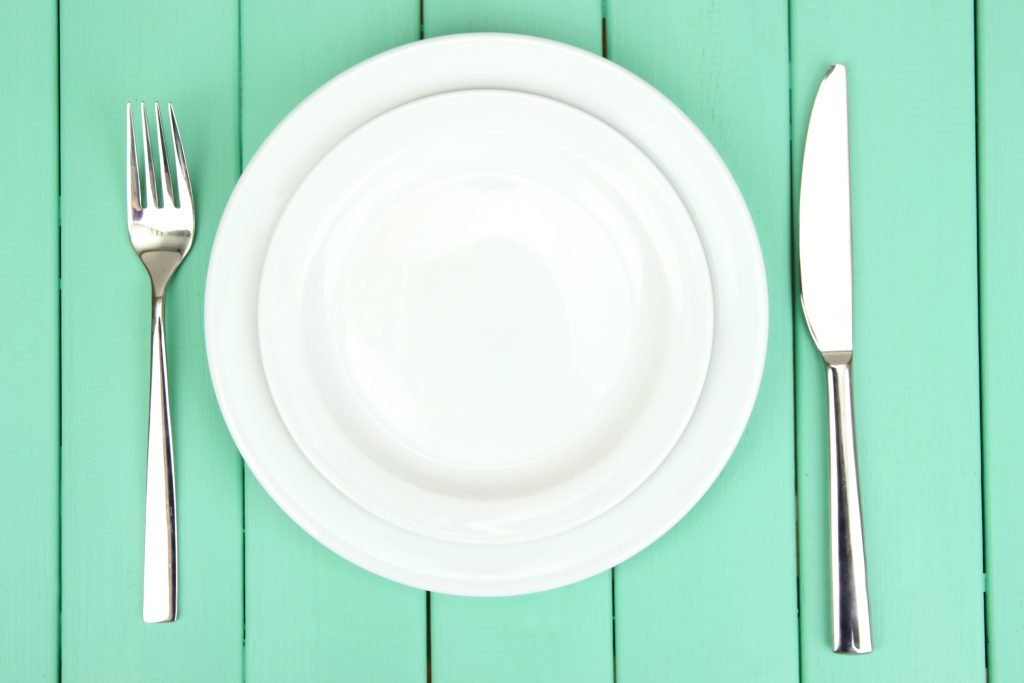Week 6 – Timing when you eat, fasting & skin rejuvenation
What happens when we stop eating?
It may be difficult to ignore the hunger pangs at first, but hunger waves come and go. Once these have passed, the effects of fasting (no food, only drinking water) are very positive for your skin.
Firstly your digestive system gets a break, blood glucose levels improve, insulin is lowered, and our skin cells regenerate. There is an increase in wound healing, and even an anti-ageing effect due to ‘autophagy’, a natural process where your body mops up old skin cells, allowing for new healthy cells to be regenerated.
How long should you fast?
Fasting for 16 hours i.e. overnight and during the morning, can be enough time for some people to see improvements in their skin, however other people benefit from fasting longer as autophagy is most effective when fasting for 1-3 days.
Can you overdo it? The longest recorded fast was for 382 days by a man who had only vitamins, electrolytes, water, tea and coffee. As he was obese to begin with and had medical support, his long term fasting was a success story.
Long term fasts over 2 weeks are not usually recommended though unless you are closely monitored by a professional. There is a small risk of electrolyte imbalance and heart failure during very long fasts (usually over a month). Fasting for a few days every couple of weeks though is absolutely fine and very healthy in many ways.
The 8-hour eating window
Whether you call it a 16 hour fast or an 8 hour eating window, it’s essentially the same thing.
You may wish to gradually eat your breakfast later and later over the next week to see what works well for you, but by the end of this week, you should ideally be eating within an 8 hour window. This results in a 16 hour fast each day, plenty of time for your body to rejuvenate your skin cells.
The times you choose to eat completely depend on you and may be determined by the time you wake up, your hunger signals, and when it fits into your routine easily. You may want to eat at 11am-7pm for example if you usually get home for dinner at 7pm with the family.
Here are a few popular eating times within an 8 hour window:
| Eating window | 10am – 6pm | 11am – 7pm | 12pm – 8pm |
| Breakfast | 10am | 11am | 12pm |
| Lunch | 2pm | 3pm | 4pm |
| Dinner | 6pm | 7pm | 8pm |

Challenge 11: Fast for 16 hours each day
– Eat meals during an 8 hour window each day
– Eat meals at roughly the same time each day
– It’s ok to have water, tea or coffee (without milk) when fasting
ADVANCED challenge 11: Fast for 3 days this week
– Start the fast when you finish a meal e.g. after breakfast on the first day, and then finish the fast 3 days later at the same time
– It’s ok to have water, tea or coffee (without milk) when fasting
– Do not have supplements which should be taken with food
– Do not fast if pregnant, breastfeeding, or if you have diabetes
Deep sleep and skin healing
Your circadian rhythm can significantly affect your skin’s water retention, skin proliferation, blood flow and temperature, so getting a good sleep routine can make a huge difference to your skin health. Your skin’s ability to heal is also impacted by how much deep sleep you have.
If you get enough hours of sleep throughout the night and you still feel tired throughout the day, it could be that you are having interrupted sleep, or light sleep. If in doubt, you can track your sleep using a Fitbit watch or something similar to measure movement and heart rate to estimate when you are in deep sleep.
How to get better quality sleep with melatonin
Sleeping in a quiet dark room with no interruptions is the ideal situation to get more deep sleep, but in reality this is rarely the case.
Whether it’s your neighbours music, the birds outside or your kids waking you up multiple times in the night, sometimes these disturbances are unavoidable. So let’s not dwell on these issues too much, but instead concentrate on how we can improve sleep quality when you have the chance to sleep.
One of the easiest and most effective ways to manage your circadian rhythm is to regulate your melatonin hormone. Melatonin, often called the ‘sleepy hormone’ is released in your body when it is dark. Sunlight suppresses melatonin levels, keeping you awake and alert, and when the sun sets, it naturally increases, helping to relax you ready for bedtime.
If you are camping for the weekend, your body may have the perfect melatonin fluctuations to help you feel tired at night time, and then wide awake during the early morning hours with the sun shining through your tent.
In our normal day-to-day routine though, it’s common to not see the sun until many hours after waking, stay indoors for long periods of time, and then be exposed to blue light on phones or computer screens.
If you’re staying indoors all day, your melatonin levels may be consistently high, making you drowsy during the day, and then without a sudden increase in melatonin in the evening, you are unlikely to fall asleep easily.
If you expose your eyes to sunlight early on in the day, you suppress your melatonin levels early, meaning that when it is dark that evening, your melatonin will rise again. Earlier sun exposure therefore helps you to feel sleepy in the evening before bedtime.

Challenge 12: Get sun exposure to your eyes for 20 minutes before midday
– Do not wear sunglasses
– It’s ok to wear a hat to protect your skin
– Sunlight is still bright enough even when cloudy
– Get out earlier in the day if you want to feel tired earlier in the evening
ADVANCED challenge 12: ALSO…Limit blue light exposure 2 hours before going to bed
– Set your phone to have a yellow light night setting 2 hours before bed
– Do not watch TV, unless wearing blue light blocking (orange tinted) sunglasses 2 hours before bed
